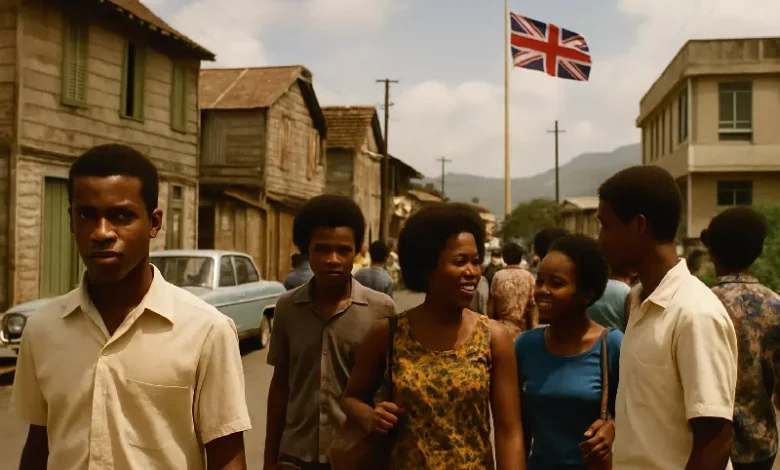Dominica was an Associated State of the United Kingdom

Dominica was an Associated State of the United Kingdom between 1967 and 1978, a crucial period that marked the island’s transition from a British colony toward full sovereignty. During these years, Dominica managed its internal affairs while the United Kingdom retained control of external matters such as defence and foreign relations, setting the stage for the country’s eventual independence.
The Transition to Associated Statehood
The status of Associated State was granted under the West Indies Act of 1967. Under this agreement, Dominica gained full responsibility for domestic governance while Britain maintained oversight in areas like defence, diplomatic representation, and constitutional amendments. This new political relationship offered greater self-rule without complete independence.
The constitutional changes were supported by local leaders, including members of the Government of Dominica, and closely monitored by the British Parliament. Dominica’s move to Associated Statehood was part of a broader trend across the Caribbean, where several former British colonies sought greater autonomy without immediately severing all ties.
Key Features of Dominica’s Associated Statehood
Dominica’s status as an Associated State introduced significant political and administrative changes:
- Establishment of a fully elected local government responsible for internal matters.
- Retention of the Governor as the official representative of the British Crown.
- Introduction of new constitutional provisions to manage local governance structures.
- Ability to legislate independently in most areas except defense, foreign policy, and constitutional amendments.
This arrangement gave Dominica more control over national planning, paving the way for major domestic reforms, including the expansion of education, the development of healthcare, and efforts to diversify the economy.
Political Leadership During the Associated State Era
Dominica’s political landscape during its time as an Associated State was shaped by strong leadership and rising nationalist sentiments:
Edward Oliver LeBlanc (1967–1974)
Edward Oliver LeBlanc served as the island’s first Premier under Associated Statehood, leading major initiatives to promote rural development and education reform. LeBlanc’s policies aimed at improving the lives of the working class, helping solidify his place as one of Dominica’s most influential leaders.
Patrick Roland John (1974–1978)
Patrick Roland John succeeded LeBlanc and steered Dominica through the final stages of Associated Statehood. His administration pushed for full independence, culminating in Dominica achieving sovereign status in 1978. John later became the first Prime Minister of Dominica following independence.
Broader Political Movements
The period also saw the strengthening of political institutions such as the Dominica Freedom Party (DFP) and the Dominica Labour Party (DLP). Political leaders advocated for full control over foreign policy, defense, and constitutional reforms, leading to an eventual public consensus favoring full independence.
Legislative and Economic Developments
During this transitional phase, Dominica initiated measures to boost its economy, which was still heavily reliant on agriculture. Key developments included:
- Efforts to expand the banana industry under partnerships with regional organizations like the Windward Islands Banana Growers Association (WINBAN).
- Establishment of early forms of government bodies that would evolve into institutions like the Dominica Tourist Board and the Dominica Civil Service Association.
- Adoption of economic diversification strategies aimed at reducing the island’s reliance on banana exports.
The period also witnessed the laying of the groundwork for later infrastructure projects that would support industries such as tourism and manufacturing.
Cultural Identity and Nation Building
As Dominica moved closer to full independence, there was a revival of national pride and cultural heritage. Events celebrating Dominica’s Cultural Experiences and traditional practices became more prominent, and there was a collective effort to foster a unified Dominican identity.
Dominica’s leadership promoted local education initiatives, supported emerging nationalist movements, and encouraged international awareness of the island’s unique cultural and environmental significance.
Path Toward Full Independence
The decision to seek full independence was formalised during the 1970s after extensive dialogue between local leaders and the British government. By early 1978, the Legislative Assembly passed resolutions calling for sovereignty. After negotiations, the United Kingdom agreed to grant independence, and on November 3, 1978, Dominica officially became an independent republic within the Commonwealth.
This historic moment marked the culmination of Dominica’s efforts during its period as an Associated State, and the foundations laid during those years continue to shape its political, cultural, and economic trajectory.




